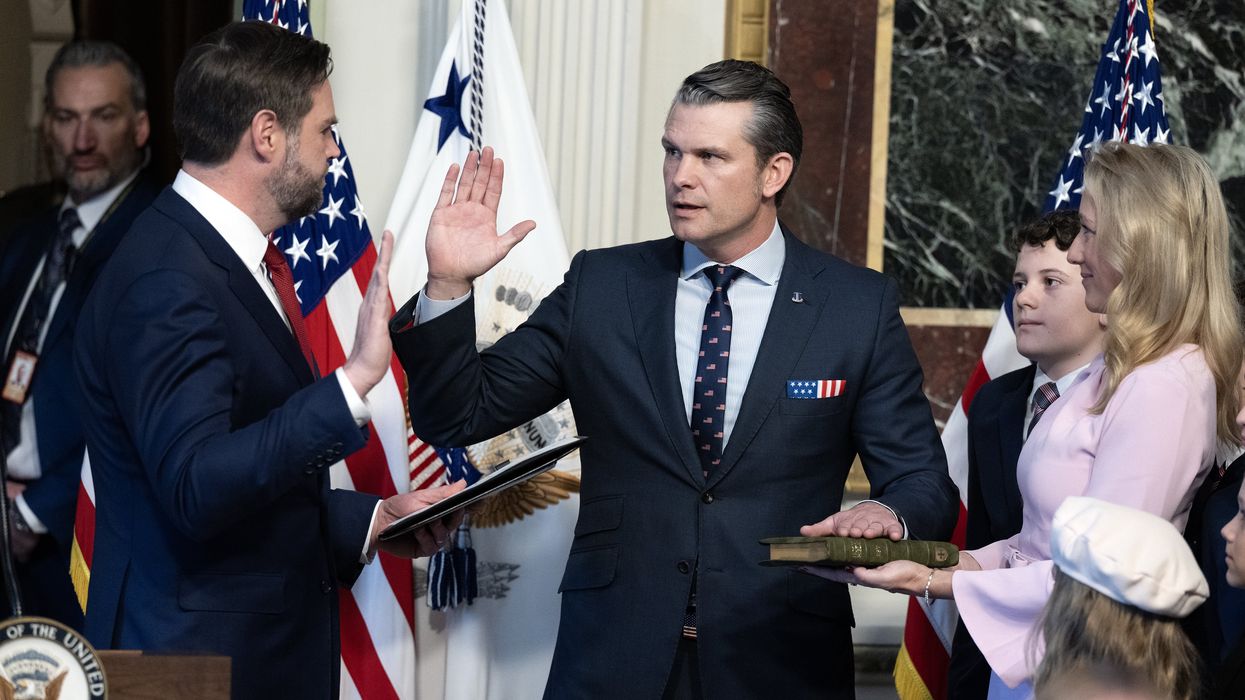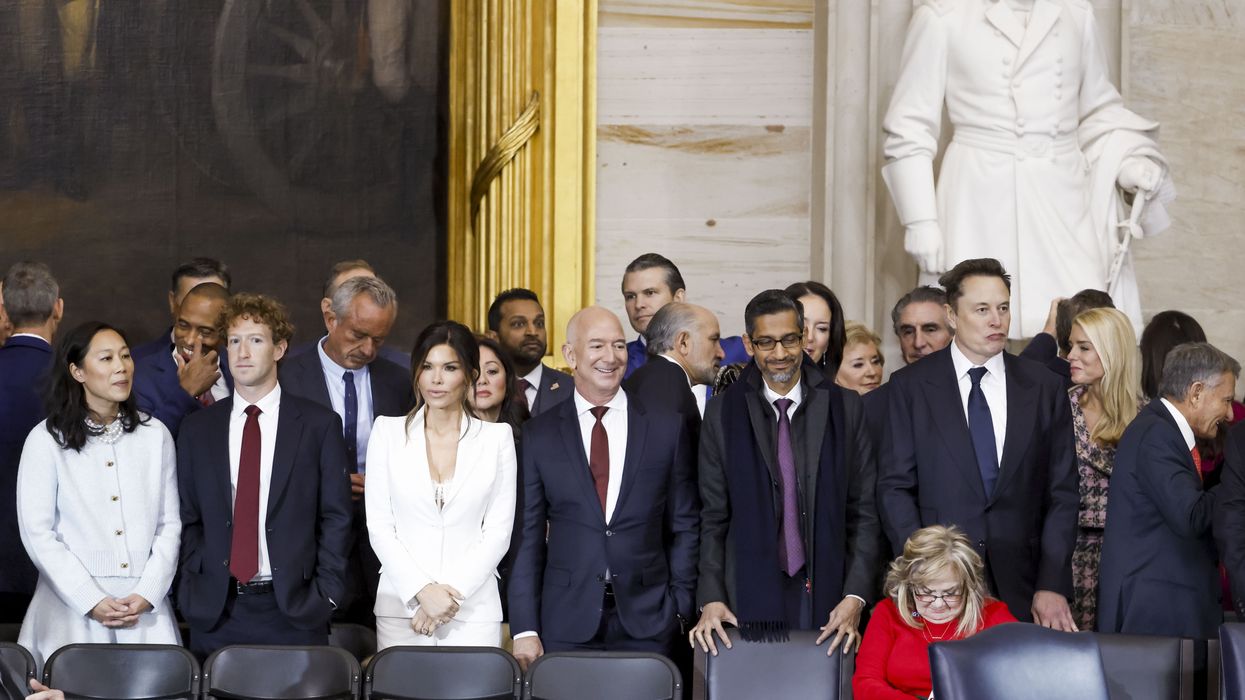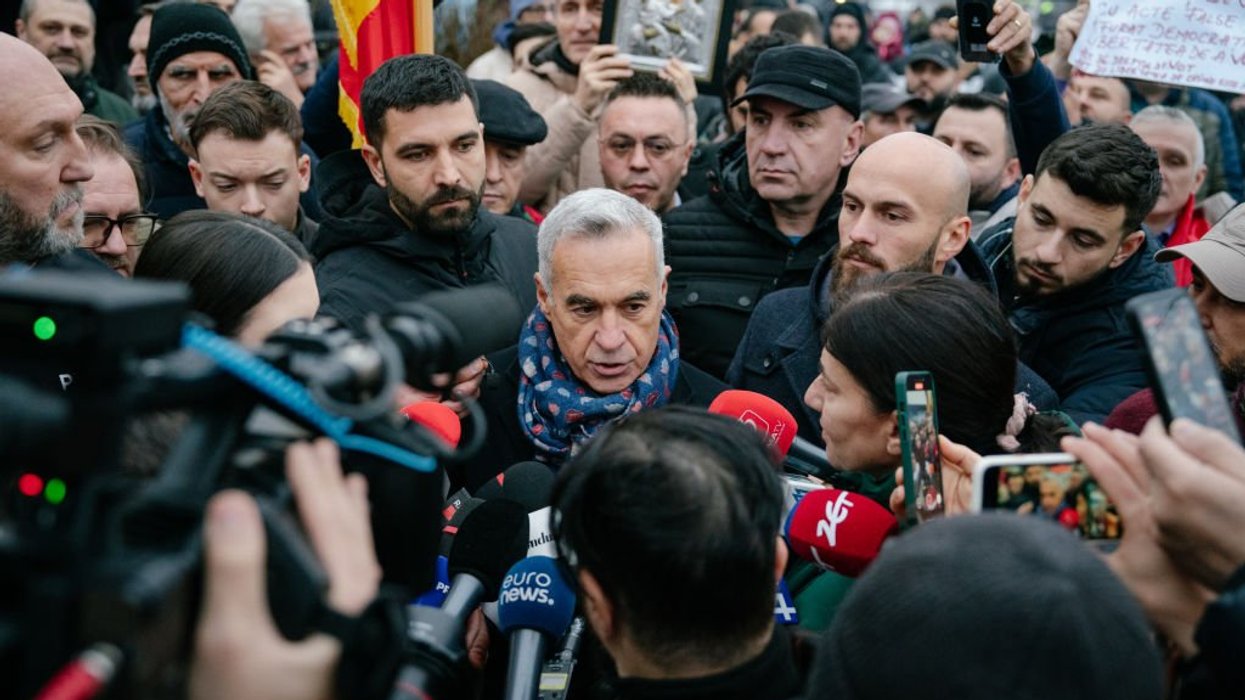GLENN: I swear to you -- it's like I woke up in a parallel universe. I cannot believe the conversations that we have to have today as a society. Even polite society. There is no such thing as polite society anymore.
I want to play some audio we played for you earlier this week. This was actually from a hearing on H.R.490. The Heartbeat Protection Act of 2017. And Star Parker was testifying in front of Congress. And, man, is she brave. Listen to this.
STAR: But if you also consider in your deliberations regarding H.R.490, the last time in American history that we were faced with hard Constitutional and political questions on the civil conflict between humanity and convenience, personhood and property, justice and public opinion, slavery was as abortion is, a crime against humanity.
Like slavery, tensions were created in a public square and in law concerning who qualified for natural rights worthy of protection.
In the first 89 years of our nation's existence, it was the black slave who sought freedom and equal protection under the law. And many attempts were made to heed their cry. Today, it is the concede person living in the womb of its mother that should be considered human with opportunity of equal protection under the law.
It is ironic that, while the 14th Amendment of the United States Constitution in 1868 humanized slaves, the United States Supreme Court of 1973 dehumanized of the life of the being in utero, handing down a decision that wreaked in ethnic cleansing, to once again allow a powerful few to determine exactly who had a right to humanity.
GLENN: Star Parker is with us now.
How much heat are you getting, Star Parker?
STAR: Well, thank you, Glenn, for having me on. And, frankly, that is the first interview -- you are the first to actually play some of what I said in the testimony.
GLENN: Shut up.
STAR: Mostly because of what happened after.
No, seriously. So I'm listening to it saying, oh, so I did make my point.
No, what happened during the Q&A, I answered a question and then referred back to some of the discussion that was earlier, one of the congressmen.
We call him now Congressmen Coward Cohen. And because he kept throwing in welfare programs into the discussion. But he wasn't the only one. So did a protester during the time that they were actually shown an ultrasound in the hearing room, first in the history of the country. You think it would be front page news that they actually showed an ultrasound of a live, in-the-womb child in a congressional hearing.
As I said, so I then answered and addressed his promise about welfare and trying to delude what we were talking about, called it disingenuous to combine the two issues. And he lit into me. I mean, he called me ignorant. He told me that I didn't know how to address the Congress, after the hearing was over. He came up and put his finger in my face and told me I better come to his office and apologize.
GLENN: Wow.
STAR: Yeah. So that's what went viral. So what really got lost, I really appreciate you playing that, is the actual testimony. This is very serious business what we've been doing.
GLENN: Yeah. I have to tell you, Star, I am so sick of the back and forth viral bites that have nothing to do -- I'm sorry. And they will call me ignorant as well. Arguing about welfare programs when it comes to abortion is exactly the same is arguing for slavery because it will destroy the economy and people will suffer.
STAR: Right. Well, and that's why I had to address it, even though maybe I was a little out of order because he didn't ask me a specific question. But I wasn't addressing him. I was addressing the chairman who did ask me a question. Chairman of the subcommittee for the judiciary on Constitution and civil justice. Getting to what you're discussing earlier and how it's unbelievable the things that we have to now discuss in the public square, when children are listening, because of the sexual matters that are coming on to the front pages. And yet they're rooted in this abortion question.
When you're killed in the womb -- what we're doing in abortion -- let's even set aside for one moment, the moral, the medical, and the mental implications to abortion. Abortion feeds a narrative that women are just victims that can't control their impulses. They can't, as you said, learn how to say no when things are inappropriate and find the language to say, "Excuse me, sir, but this is not appropriate. So I'm leaving the room right now."
And it's because it feeds that narrative that you can't control your sexual impulses. And so now people are sexually out of control. That's why marriages have collapsed. That's why out-of-marriage births have escalated. And we, as a nation, better get a grip on this.
Otherwise, we're going to always have discussions about sexual matters and somebody else. And accusations that are coming forth, that we don't even know if are true. Like just wanted happened to the candidate who, 40 years earlier, someone said, a-ha, this is what you said to me. Who remembers what they said 40 years ago?
GLENN: So, Star, how do we -- we are entering a time -- and we -- you know, we have the oldest Congress in the history of the United States. This is the oldest Congress ever.
And we are on the -- the edge of profound technology change that is going to make us question what life even is. And I don't mean, is it life in the womb? That's a pretty easy one. Yeah.
STAR: Yeah.
GLENN: If it's a puppy when it's in the dog's womb, it's a child when it's in the human's womb. We're entering a time now where we're going to have to define life with AI. And that's going to screw everything up.
How do we get -- how do we get to a point to where we can have rational discussions that must be had now?
STAR: That is the million-dollar question. But, you know, you just brought up a fascinating point that I'm going to have to contemplate and think about later, about the oldest Congress. Because you would think there would be deep passion, since they're on the senior year, to argue for the most innocent in the womb, because they're next.
A couple of states have already passed euthanasia. We're starting to, as a culture, collapse when it comes to protecting the innocent, understanding what the Constitution really means.
But how do we get there? We may have to start over. That's why I fight a lot for school choice. We're going to have to again build a moral framework within our youth.
And the only way to do that is get you out of these cesspools that we call schools that indoctrinate them in secularism and put them in schools where they're building moral framework and integrity.
The only ones that are really trapped now in failing government schools are the very poor, the most vulnerable, who are getting lost in all of this noise. And that's why their lives are in more chaos. So how do we get back? You replace everybody in Congress.
I was surprised that after McCain lost the -- you know, the presidency when he ran. That he didn't just retire even at that age.
What is he still doing there? Why hasn't he passed the baton to younger energy? And now they can have it even over his own. The whole thing may get to the place that we were in the 1850s, to where we can't go on anymore. And end up in a real difficult direction.
GLENN: I think we're headed in that direction.
STAR: I do too.
STU: Star, your commentary was really interesting in talking about abortion, as it relates to slavery. And I think a lot of people assign their sort of moral decision-making on difficult topics like this to society. So I think even back in the day, a lot of people who probably if they really stopped and thought about it, would think, slavery is crazy. It's a crazy idea.
But since society said it was accepted and it was legal, people just sort of went along with it. It was a controversial issue, maybe. But they didn't want to talk about it in polite company.
STAR: Yeah. Same thing.
STU: Is that what you're seeing now because it's not people who are necessarily horrible people, but they want to avoid the tough sort of moral --
GLENN: Big time.
STU: -- examination of themselves to really think about whether this is right or wrong.
STAR: That's right. That's right. And not only on abortion. On many issues. But you're absolutely right. The same politicians would have it today. And, in fact, one of the things I also said in that testimony is, if you put Roe v. Wade next to Dred Scott, they read almost verbatim. They're both talking about property. They're both talking about, you know, the rights of the person who had -- the letter we hear from the left, even on abortion: Well, if you don't like it, don't have one. That's the same they were saying during slavery. Well, you don't have to own one. Yeah, well, remember, very few owned slaves.
Now, the narrative of the left is every white person is guilty of slavery because all of them had one. No, that was not true. Slavery was elite -- you had to have some money to own a slave.
Anyway, it was very controversial. But you're right. The silent majority allowed this country to go 89 years and then enter into a Civil War because they just didn't have the courage to speak up.
You're absolutely right. They knew it was wrong. And every time the Congress tried to manipulate around. It's the same way they manipulate us now around abortion.
Well, maybe we just won't let it into the (inaudible) state. Well, maybe we can just pass this bill after -- maybe we can -- no, if it is a crime against humanity, you shouldn't be doing it, and you should be doing everything you can to stop it. And that's where we are even with the abortion question today, exactly where we were with the question of slavery back in the day.
GLENN: Does it amaze you that Margaret Sanger and all the eugenicists back then that were trying to wipe out the black race, openly wipe them out, are so seemingly celebrated as friends of the black community now, that that's what they're standing up for? Oh, no. We're just trying to help the poor inner city black woman.
STAR: It's crazy. On Halloween, they tweeted out their real agenda: Black women, have an abortion. Because they're safer than having the child.
It's crazy. The first black president in the country goes to Planned Parenthood's annual celebration. The way they kill off black children in this country. Twenty million blacks have died in the womb of their mom since Roe v. Wade. And he goes. And not only he goes, but he says, God bless you.
Yeah, it's amazing how blinded people are to these facts. How is it that we allow ourselves to be complicit in abortion, with Planned Parenthood, by allowing them to get corporate welfare year after year at $520 million. It's what they're getting.
In fact, everyone you know. Everyone -- they know everyone. They know probably ten times. Might as well just hand the money straight to Planned Parenthood. Because it still wouldn't equal $520 million.
And for some reason, we want corporate welfare out of here. But that billion dollar corporation gets 520 million tax dollars every year to do their primary business, which is to kill offspring.
GLENN: Star, thank you so much. God bless. Thank you.
STU: Hmm.
Star Parker is the founder and president of the Center for Urban Renewal and Education. You can get her on Twitter @UrbanCure. UrbanCure. Or UrbanCure.org.











